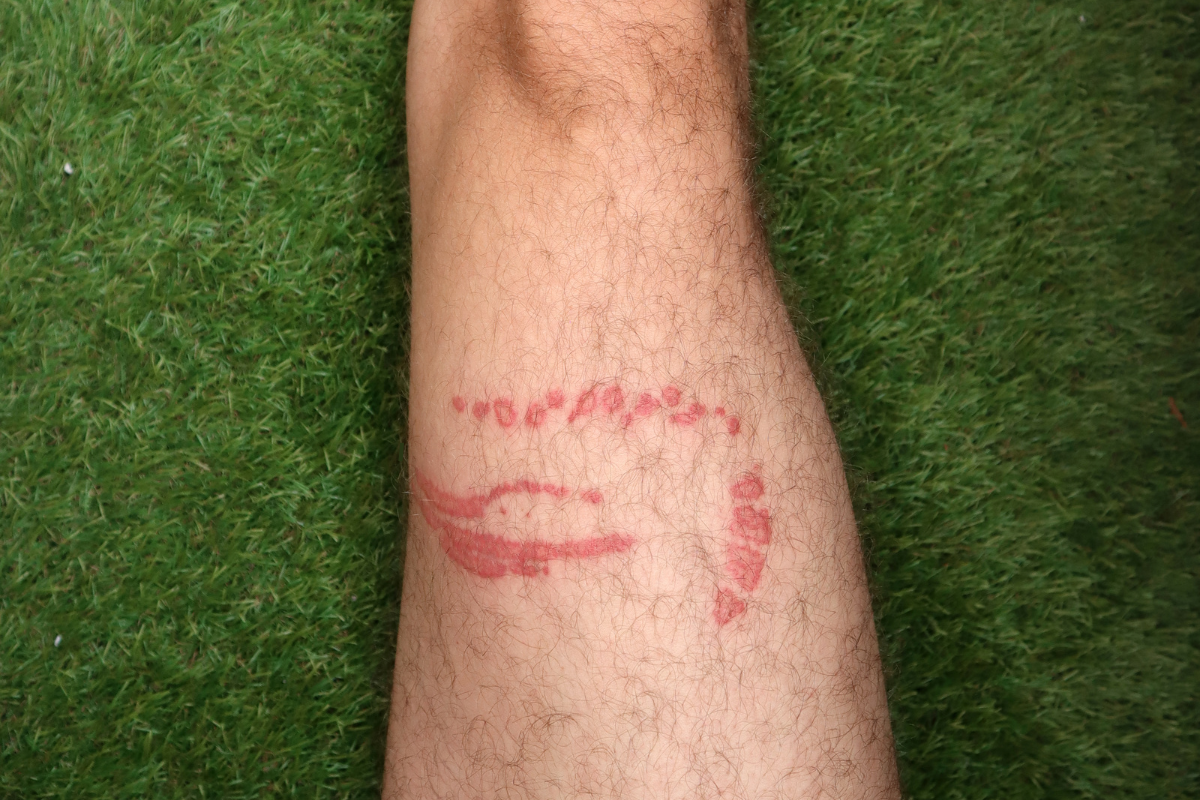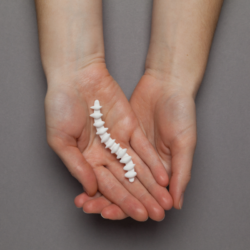However beautiful they may be underwater, every summer holidaymakers dread the appearance of jellyfish on our beaches. Overfishing and rising water temperatures are at the root of this invasion. Jellyfish cause severe burns. Their tentacles are made up of filaments that stay on the wound and spread venom. The pain caused by a jellyfish sting is similar to an electric shock. It is immediately accompanied by a burning sensation, varying in intensity depending on the person and the species, followed by itching. However, there are natural remedies for jellyfish stings.
The three types of jellyfish in France
When it comes to jellyfish in France, it’s important to know that there are several species of these marine animals. In fact, France’s coastal waters are home to several different types of jellyfish, each with its own characteristics and dangers. In this section, we present the three most common types of jellyfish in France, their characteristics and the risks associated with their sting.
Three species live mainly on French shores:
Aurelia jellyfish:
The “aurelia” jellyfish is one of the most common species in France, populating mainly the English Channel. Recognisable by its blue or pink colour and its hundred or so slightly stinging tentacles, it is often considered harmless. However, it is important to note that although its stings are not fatal, they can cause unpleasant skin reactions such as redness, itching and pain. It is therefore advisable to avoid all contact with these marine animals, especially if you have sensitive skin. If you are stung by an “aurelia” jellyfish, it is important to wash the affected area with seawater or salt water, then apply a natural remedy to relieve the symptoms.
Rhizostoma jellyfish:
The “rhizostoma” jellyfish is a species that can be found in the waters of the Atlantic. It is characterised by its bluish sheen and its four weakly stinging arms, which in turn divide into eight arms fused together at the end. Although its stings are generally not very painful, they can cause allergic reactions in some people, so it is important to remain vigilant in the presence of these marine animals. If you are stung by a “rhizostoma” jellyfish, you can apply a natural remedy to relieve symptoms such as redness, itching and pain. It is also advisable to consult a doctor if the symptoms persist or worsen.
Pelugia noctiluca jellyfish:
The “pelugia noctiluca” jellyfish is one of the most stinging species in France. It is distinguished by its orange or violet colour with red spots, and is found mainly in the Mediterranean Sea. Although its stings can be painful, they are not generally fatal to humans. However, it is important to take precautions when swimming to avoid contact with these marine animals.
If you are stung by a “pelugia noctiluca” jellyfish, it is important to react quickly by applying a natural remedy to relieve symptoms such as redness, itching and pain. In the event of an allergic reaction, it is advisable to consult a doctor. Jellyfish live at the bottom of the water and rise to the surface to feed, propelled by their tentacles. It is therefore important to remain vigilant at sea and take precautions to avoid any contact with these potentially dangerous marine animals.
Natural remedies for jellyfish stings
Jellyfish stings are a common accident when swimming in the sea. Stings can cause intense pain and itching, redness, swelling, burning and even nausea. If you are stung by a jellyfish, it is important to act quickly to relieve the symptoms and avoid complications. In this section, we present the best natural remedies to relieve jellyfish stings. These remedies have been selected for their proven effectiveness and naturalness, to offer you simple solutions. Follow these tips to reduce the pain and inflammation caused by jellyfish stings, and enjoy swimming in the sea to the full.
Rinse with sea water and cover the wound with sand
Immediately after the sting, immerse the affected area in seawater and rub gently to try to remove the filaments. Do not rinse with fresh or clear water, as this may stimulate the venom and worsen the stinging.
After rinsing, take a handful of sand and rub lightly over the bite until the filaments are gone. It is the stinging filaments that cause the sharp pain in the wound. Sea water is in fact on the list of natural remedies for jellyfish stings. Cover the wound with sand and leave to dry. Then remove the sand with a stiff piece of cardboard to remove any stinging cells still present on the skin. Rinse again with seawater.
Lavender Aspic essential oil, the best natural remedy for jellyfish stings
Organic lavender aspic essential oil is essential when you go on holiday. While it’s renowned for soothing a mosquito sting, it can also be used to soothe a jellyfish sting. After rinsing the sting with sea water, apply 1 to 2 drops of pure spike lavender essential oil and repeat 3 to 4 times in the next half-hour.
Organic lavender aspic essential oil is therefore second on the list of natural remedies for jellyfish stings.
Organic Shea Butter
Jellyfish stings are treated in the same way as burns. To soothe and reduce inflammation, it is advisable to apply oily substances after rinsing the sting with seawater.
Shea butter can be applied to a slight burn on the skin until it disappears. Highly nourishing, it contains vitamins A, E and F, as well as oleic and stearic acids. In addition, it intensely nourishes and moisturises the epidermis, prevents skin dryness, promotes cell renewal, softens and smoothes the skin while protecting it from external aggression.
Homeopathic solutions are also available; ask your pharmacist for more information.
What not to do in the event of a jellyfish sting…
In the event of a jellyfish sting, donot:
- Rinse the sting with fresh water, as this will burst the remaining cells and release the venom
- Suck up the stinging liquid with your mouth
- Rub
- Move the part of the body that has been stung
- Incise or try to make the wound bleed
- Apply a tourniquet
- Apply alcohol
- Approach a lifeless jellyfish: even dead jellyfish remain stinging for several weeks
Happy swimming and have a great summer!







